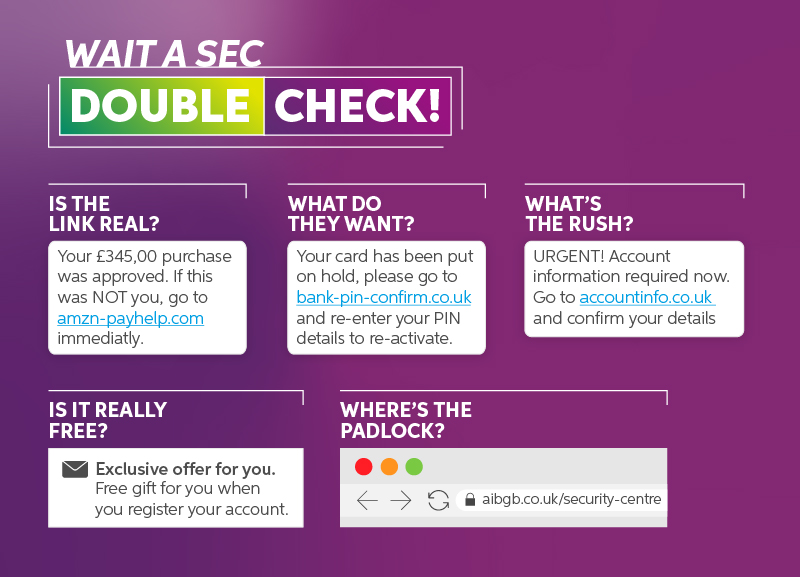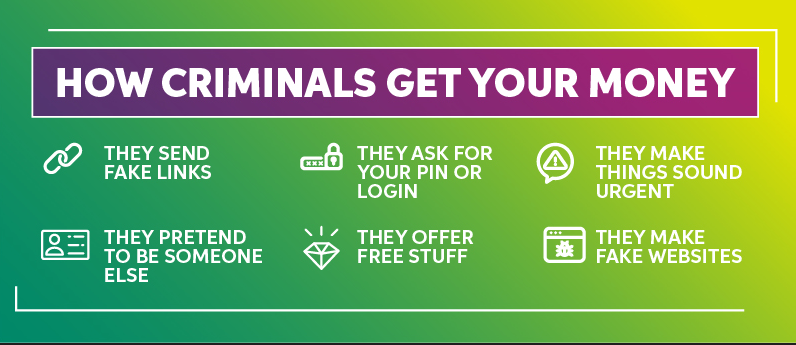What’s the difference between a fraud and a scam?
Basically, a scam is a trick that criminals use to get something from you that they can then use to their own advantage - mostly to take money from you.
So, what’s a fraud then?
Although often used interchangeably, a scam technically only becomes a fraud once it is successful, in other words as soon as the criminals get the information they need to start stealing your money.
But, what information do these criminals want?
In terms of banking scams, what they want to get from you could, for example, be details of your bank card numbers or login information. Or it might be a request to pay a small amount of money for something like a customs or excess postage charge. Whatever it is, it’s a way for them to gain access to - and potentially drain - your bank account.

And what can I do to prevent being scammed or defrauded?
Odd as it might sound, the best thing to do first is DON’T do anything!
DON’T click on a link in a text message or email to make any kind of payment
DON’T give any of your online banking login details to anyone by text, email or over the phone
DON’T click through to a website from a link in a text message or email
DON’T be taken in by messages that claim to be URGENT - these are designed to make you panic and rush into doing something you shouldn’t.
DON’T be fooled by Texts, emails or websites that look genuine - criminals have ways to duplicate anything to make it look real - read our blog on how to stay safe from all kinds of scam.

At AIB we’re supporting our customers to avoid scams and frauds, so if you do receive a text message or email that you think is a scam, please click here to send it to us.

